Ramadan, alternatively known as Ramazan, Ramadhan, or Ramathan, stands as the ninth month of the Islamic lunar calendar. This period holds great significance as a time of fasting, prayer, reflection, and community for Muslims across the globe.
In 2024, Ramadan is expected to begin on the evening of Thursday, 21st March, and end on the evening of Saturday, 20th April. The specific dates may differ based on the sighting of the moon.
Origins of Ramadan
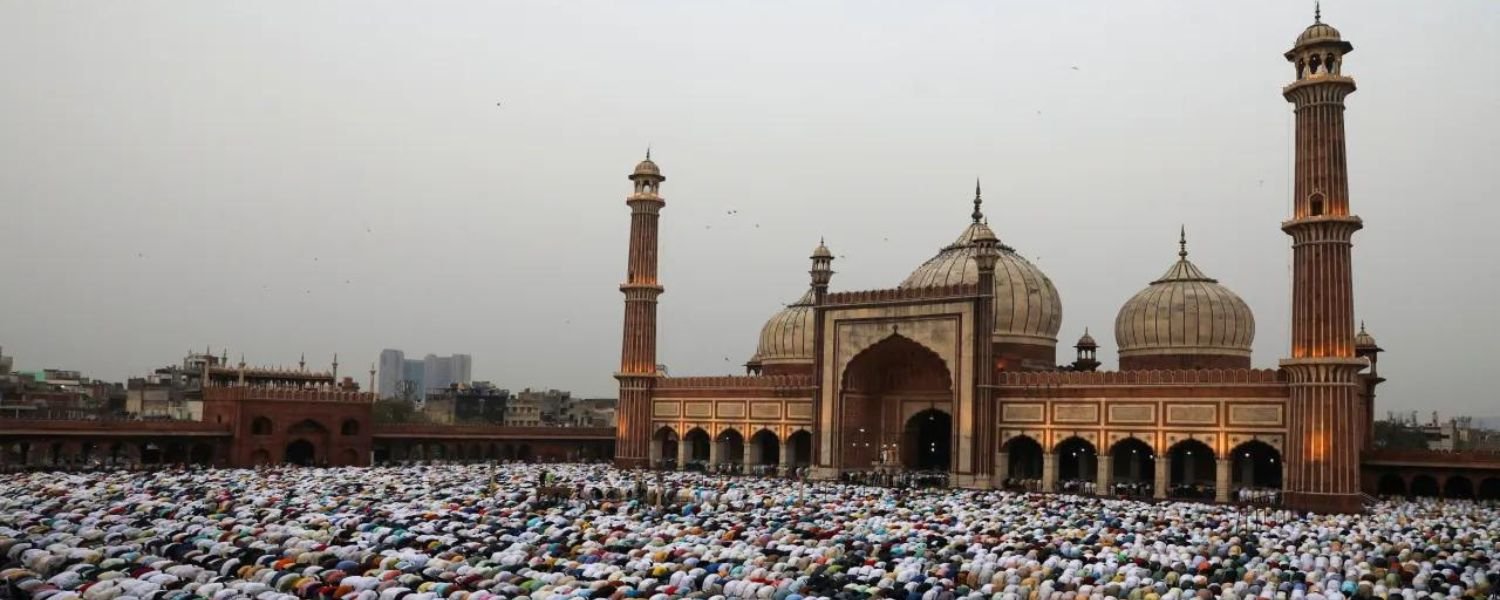
The origins of Ramadan trace back to the early days of Islam, specifically to the year 610 CE in the Arabian city of Mecca. During this time, the The Angel Gabriel delivered the first revelation of the Quran from Allah to Prophet Muhammad.
These revelations marked the beginning of his prophethood and the foundation of Islam as a monotheistic faith. The initial revelation occurred during the month of Ramadan, a significant period in the lunar calendar.
Ramadan holds profound spiritual significance as the month when the Quranic verses were first communicated to Prophet Muhammad. The fasting month became a period of intense spiritual reflection, devotion, and obedience to Allah’s commands.
Over time, Ramadan evolved into one of the Five Pillars of Islam, embodying the core tenets of the faith and fostering a sense of community among Muslims worldwide.
Thus, the origins of Ramadan are deeply rooted in the foundational moments of Islam, serving as a cornerstone of faith and spiritual growth for Muslims across generations.
Significance of Ramadan in Islam
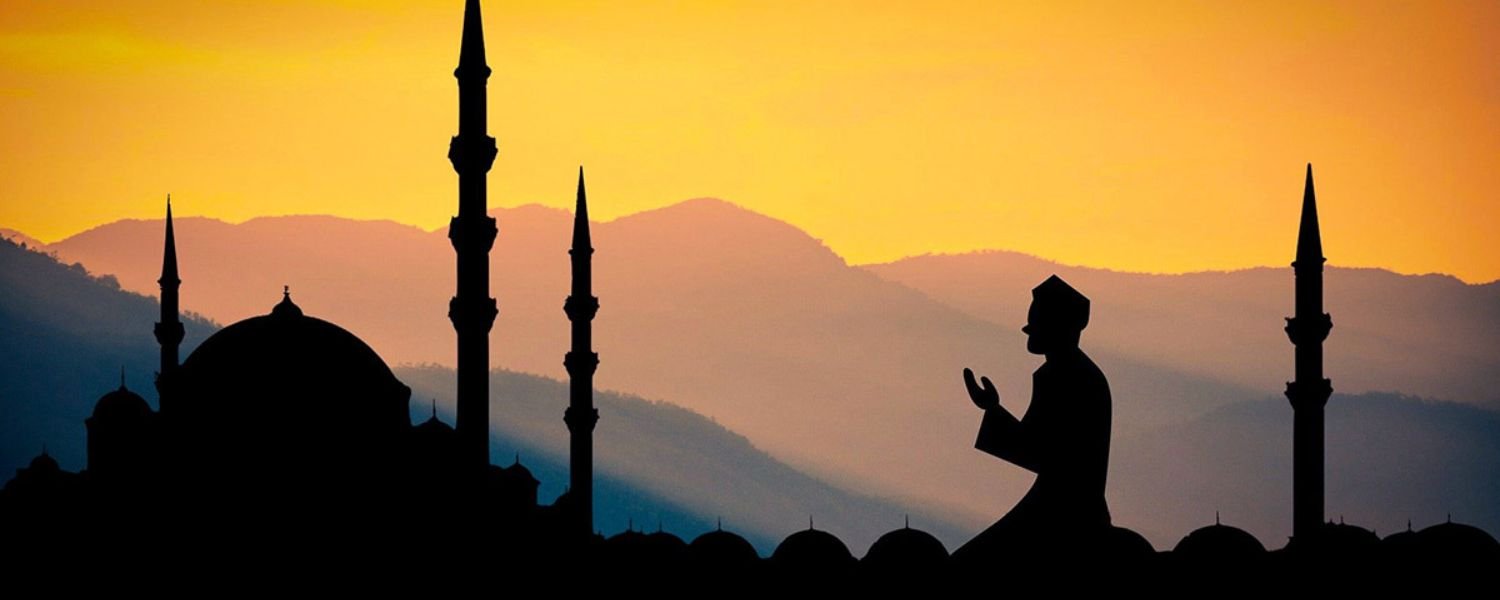
The significance of Ramadan in Islam extends far beyond mere abstention from food and drink. It’s a profound period of spiritual reflection, discipline, and heightened devotion for Muslims worldwide.
Ramadan holds immense importance as the month when the Quran, was first revealed to Prophet Muhammad by Allah.
This divine revelation serves as a guiding light for humanity, providing clear direction on matters of faith, morality, and righteous conduct.
During Ramadan, Muslims engage in rigorous fasting from dawn till sunset, refraining from physical nourishment and negative thoughts, actions, and behaviors. This fasting fosters self-discipline, empathy, compassion, and a deeper connection with Allah.
Moreover, Ramadan serves as a time for increased prayer, recitation of the Quran, and acts of charity, further enhancing spiritual growth and community solidarity.
Ultimately, Ramadan is a sacred opportunity for Muslims to purify their souls, seek forgiveness, and draw closer to Allah, embodying the essence of Islamic faith and values.
Fasting during Ramadan
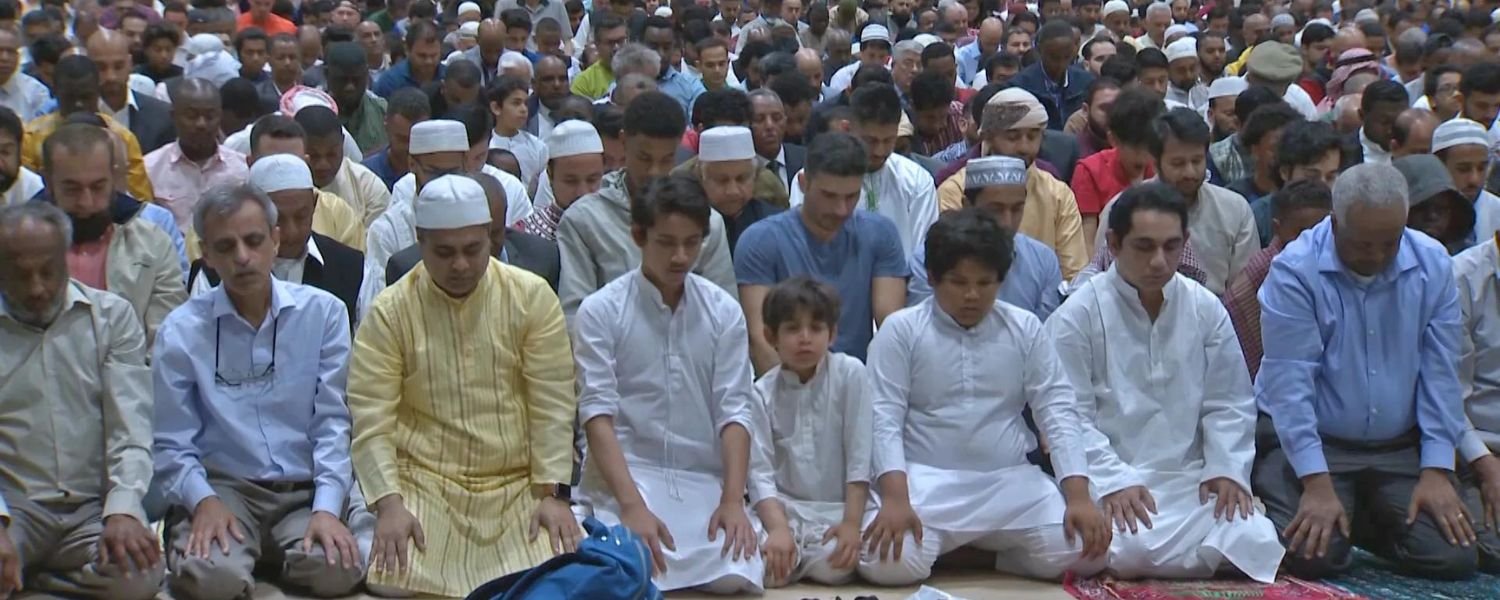
Fasting during Ramadan is a main pillar of Islam, obligatory for adult Muslims, except for specific exemptions like illness or travel.
It entails abstaining from food, drink, smoking, and sinful behavior from dawn (Fajr) until sunset (Maghrib) each day throughout the month.
Beyond physical abstinence, fasting during Ramadan fosters spiritual growth, promoting self-discipline, empathy, and closeness to Allah.
It serves as a reminder of the blessings one enjoys and the struggles those less fortunate face. The act of fasting encourages reflection on one’s actions, fostering a sense of gratitude and humility.
Moreover, it strengthens community bonds as Muslims come together to break their fasts at sunset in the meal known as Iftar.
Fasting during Ramadan is not merely about deprivation but about the purification of the soul, seeking forgiveness, and striving for self-improvement in adherence to the teachings of Islam.
Spiritual practices during Ramadan

During Ramadan, spiritual practices in Islam take on heightened significance as Muslims strive to deepen their connection with Allah.
Fasting, the central act of worship during this month, serves as a means of self-discipline and purification, fostering empathy for the less fortunate and gratitude for blessings.
Muslims engage in increased prayer and recitation of the Quran to strengthen their bond with the divine and gain spiritual insights. The night prayers known as Taraweeh, performed in congregations at mosques, offer opportunities for reflection and communal worship.
In addition to their formal acts of worship, Muslims are urged to participate in acts of charity and kindness, mirroring the compassion and generosity demonstrated by the Prophet Muhammad.
Through these spiritual practices, Muslims aim to elevate their consciousness, purify their hearts, and draw closer to the divine presence, embodying the values of piety, humility, and compassion emphasized in Islam.
Overall, Ramadan serves as a transformative period for spiritual growth, renewal, and self-improvement within the Muslim community.
Ramadan in the Quran
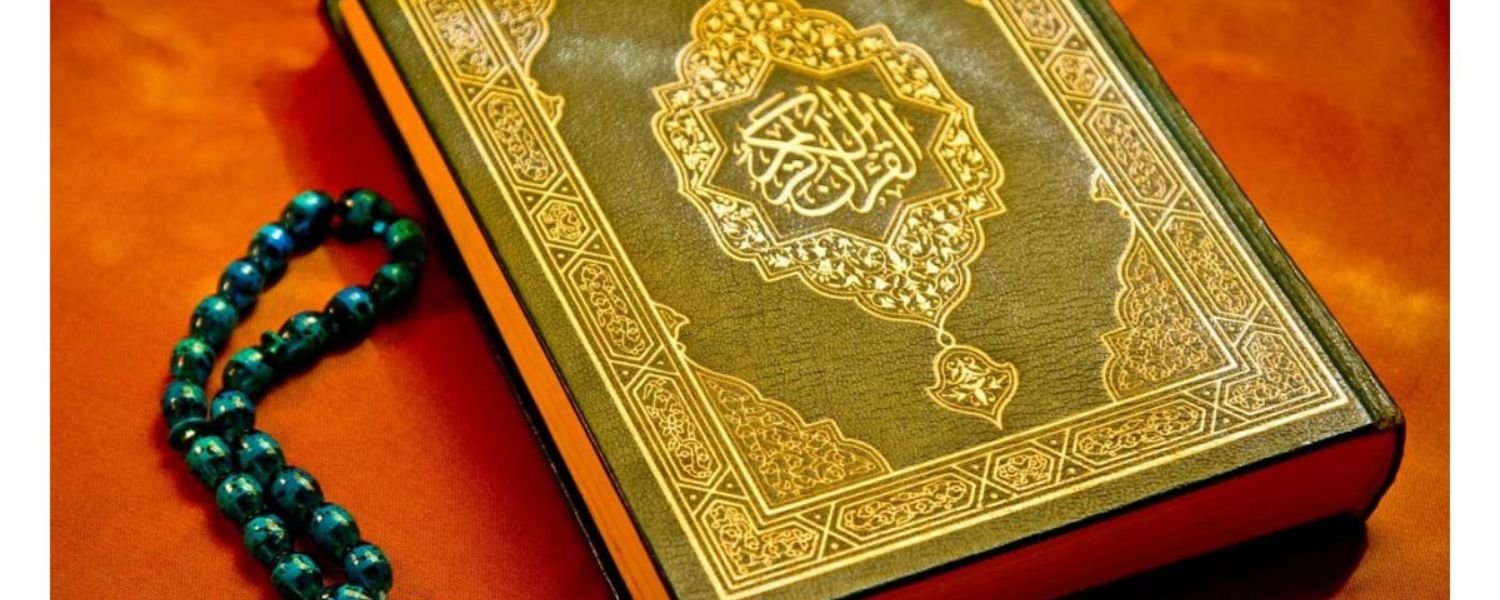
Ramadan holds profound significance in Islam, particularly as mentioned in the Quran. The Quran describes Ramadan as the month when it was sent down as a guide for humanity, containing clear proofs of guidance and a criterion to distinguish between right and wrong.
The revelation of the Quran took place gradually over about 23 years, starting with the initial verses revealed to Prophet Muhammad in the Cave of Hira.
The Quran emphasizes the importance of fasting and night prayer during this sacred month, highlighting it as a time for believers to draw closer to Allah through worship, self-discipline, and reflection.
Muslims worldwide revere Ramadan not only for its historical significance but also for its role in nurturing spiritual growth, fostering empathy and compassion, and reinforcing community bonds.
The Quranic verses related to Ramadan serve as a reminder of its sanctity and the opportunities it offers for spiritual elevation and self-improvement.
Laylat al-Qadr
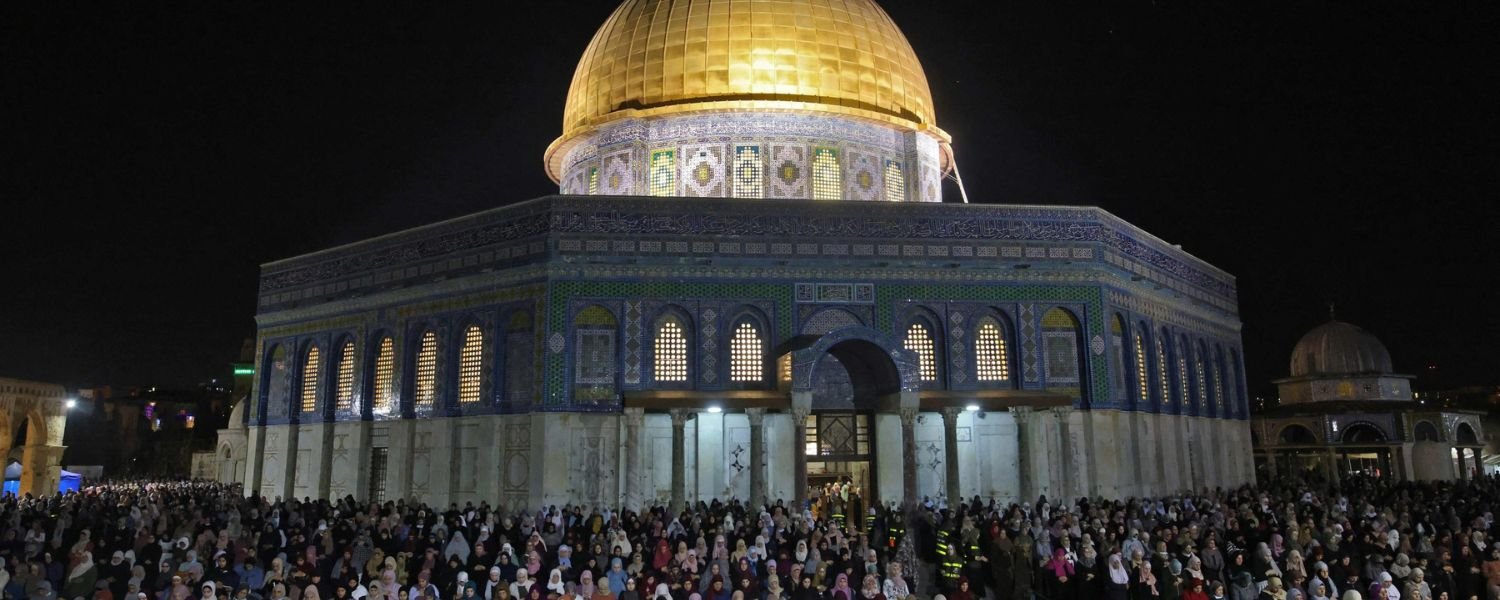
Laylat al-Qadr, commonly referred to as the Night of Power, carries profound importance within the Islamic faith. Many believe it to be the night when Allah conveyed the initial verses of the Quran to Prophet Muhammad via the Angel Gabriel.
Occurring during the last ten nights of Ramadan, particularly on odd-numbered nights such as the 21st, 23rd, 25th, 27th, or 29th, Laylat al-Qadr is considered the holiest night of the year.
Muslims believe that on this blessed night, divine blessings and mercy descend upon the Earth, and the angels descend to bestow peace and tranquility upon believers.
The Quran describes Laylat al-Qadr as better than a thousand months, signifying its tremendous spiritual value. Worshiping on this night is believed to bring immense rewards, forgiveness of sins, and the fulfilment of prayers.
Therefore, Muslims engage in intense acts of worship, prayer, recitation of the Quran, and seeking forgiveness during Laylat al-Qadr, striving to gain its blessings and draw closer to Allah.
Eid al-Fitr: Celebration of Ramadan’s end
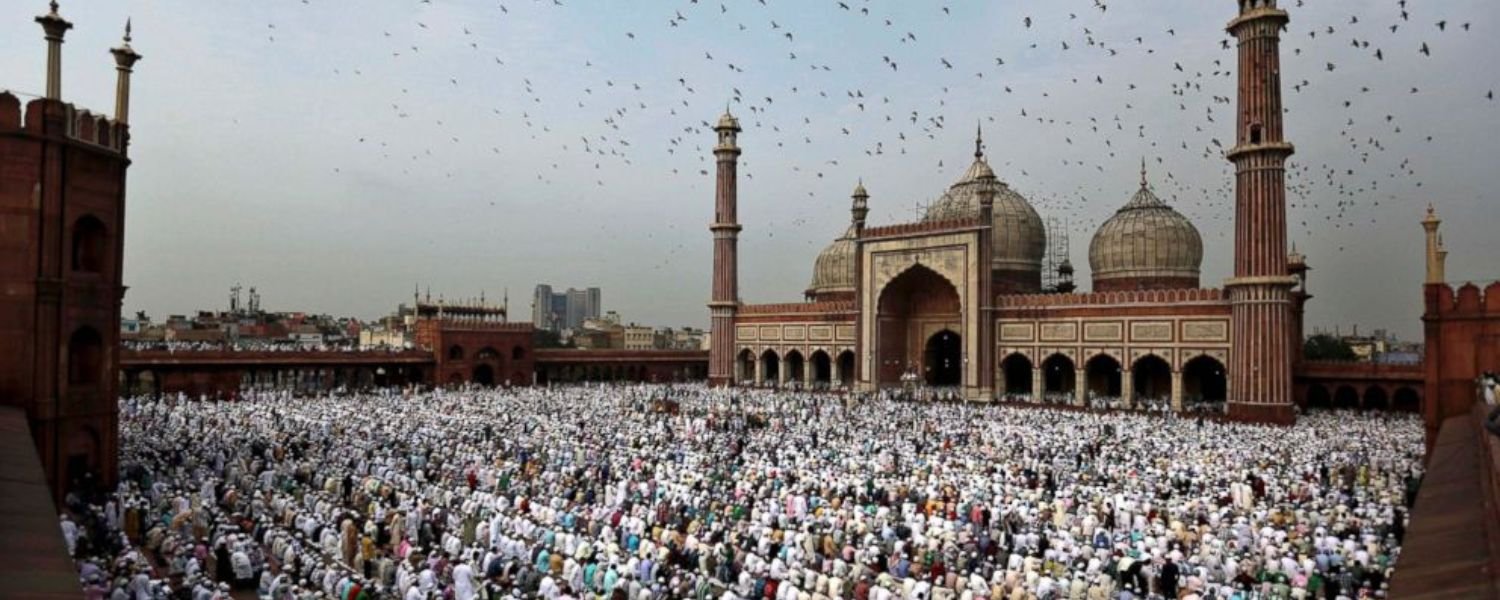
Eid al-Fitr, which is also known as the “Festival of Breaking the Fast,” is a jubilant occasion symbolizing the conclusion of Ramadan, the sacred month of fasting in Islam. It is a time of great happiness and gratitude for Muslims worldwide.
The celebration begins with a special prayer service at the mosque, where Muslims gather to offer thanks to Allah for the strength and patience shown during Ramadan.
The prayers are often held in large congregations, with communities coming together to worship and express solidarity. Following the prayers, loved ones come together to enjoy celebratory meals and exchange gifts.
It is customary for Muslims to wear their best clothes and adorn their homes with decorations to mark the occasion. Children, in particular, look forward to receiving gifts and sweets during Eid al-Fitr.
Another significant aspect of Eid al-Fitr is the act of charity, known as Zakat al-Fitr. Muslims must give specific money or food to those in need before the Eid prayer. This guarantees that everyone can join in the festivities and share in the happiness of Eid.
Overall, Eid al-Fitr is a time of reflection, renewal, and community spirit as Muslims come together to celebrate the blessings of Ramadan and the gift of faith.
Ramadan traditions around the world
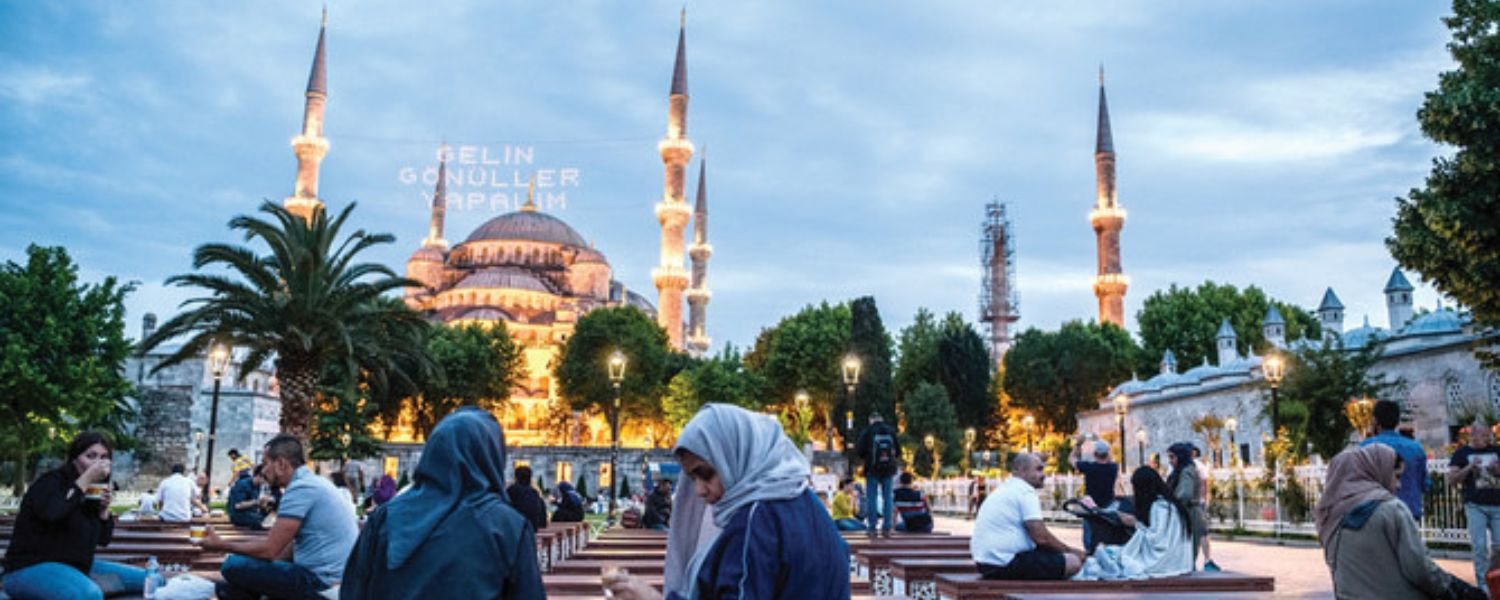
Ramadan traditions vary widely worldwide, reflecting the diverse cultures and customs of Muslim communities. In the Middle East, families gather for lavish Iftar meals featuring traditional dishes like dates, soups, and pastries.
In Turkey, it’s customary to break the fast with a refreshing drink called sherbet, followed by a meal called iftarlık, which includes dishes like pide (flatbread) and kebabs.
In South Asia, Ramadan is celebrated with vibrant street markets and bustling bazaars, where families shop for particular foods and treats.
In Indonesia, communities come together for the pre-dawn meal of Sahur, often featuring local delicacies like bubur lambuk (rice porridge) and kolak (sweet dessert). In Western countries with Muslim populations, Ramadan traditions may blend with local customs.
During Ramadan, mosques organize community Iftar dinners, and families often adorn their homes and streets with lights and lanterns.
Additionally, charitable activities, such as food drives and fundraising events, are every day during Ramadan, emphasizing the spirit of giving and solidarity within Muslim communities worldwide.
Charity and Ramadan (Zakat)

Charity, known as Zakat, holds profound significance during Ramadan, serving as a cornerstone of the month’s spiritual practice. Encourage Muslims to give generously to those in need within their communities and beyond.
One calculates Zakat as a percentage of their wealth and assets, making it a form of obligatory charity. It serves as a means of spiritual and material purification as it redistributes wealth among society’s less fortunate members.
During Ramadan, the act of giving takes on heightened importance, reflecting the values of compassion, empathy, and solidarity.
During this sacred month, Muslims strive to emulate the example of Prophet Muhammad, who was known for his generosity, especially. Zakat provides material assistance to the needy and fosters a sense of community and social cohesion.
It reminds individuals of their responsibility to care for the less fortunate and reinforces the principles of justice and equality in society.
Ultimately, Zakat during Ramadan serves as a tangible expression of faith and a source of blessings for both the giver and the recipient.
Taraweeh prayers during Ramadan
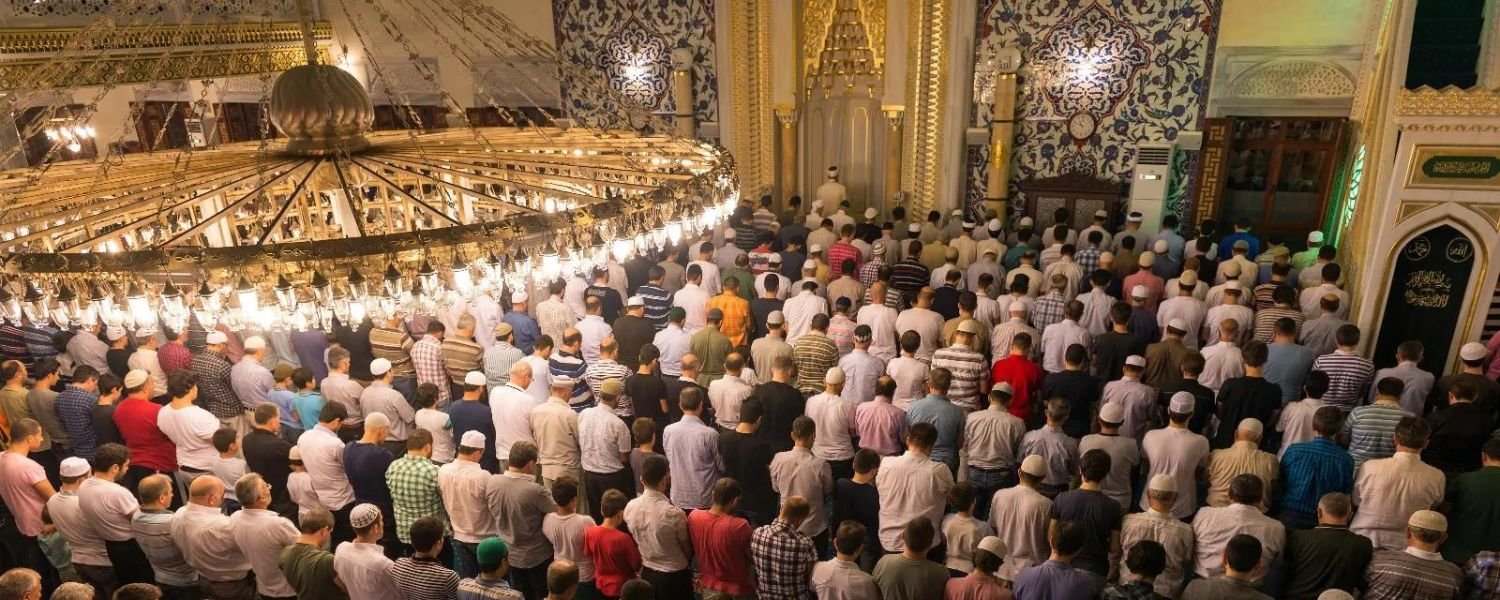
The believers typically perform Taraweeh prayers, special nightly prayers, during the month of Ramadan, typically after the obligatory Isha prayer.
In Islamic tradition, these prayers allow Muslims to engage in additional worship and spiritual reflection during this blessed month, holding immense significance.
The Taraweeh prayers consist of recitations from the Quran, typically spanning several chapters or Juz (sections), recited by the Imam (prayer leader) in the congregation.
The worshippers absorb the meaning and beauty of the recited verses through the prayers’ slower pace. The recitations often highlight themes of mercy, forgiveness, and guidance, resonating deeply with the spiritual journey of Ramadan.
Participating in Taraweeh prayers fosters a sense of community and unity among Muslims, as they gather in mosques or prayer spaces to worship together.
Also believed to bring abundant rewards and blessings from Allah, engaging in Taraweeh prayers is particularly emphasized during the nights of Ramadan, which are considered especially auspicious.
Overall, Taraweeh prayers serve as a cornerstone of Ramadan observance, providing a dedicated time for Muslims to connect with the Quran, strengthen their faith, and seek closeness to Allah through prolonged acts of devotion and supplication.
Ramadan and family gatherings

Ramadan is a time that brings families closer spiritually and socially. The month-long observance encourages family members to gather for the predawn meal (Suhoor) before fasting begins and to break their fast together at sunset (Iftar).
These meals often share joy and gratitude, strengthening family bonds and fostering a sense of unity. Beyond the meals, Ramadan also promotes family time through increased religious and social activities.
Families often pray together, either at home or at the mosque, and may join in nightly Taraweeh prayers, which Muslims hold as special congregational prayers during Ramadan.
This shared spiritual experience deepens the familial connection and provides a sense of support and community. Moreover, Ramadan is a time for families to engage in acts of charity and kindness together. Families may volunteer at local charities, organize donation drives, or simply spend time helping those in need.
These activities not only benefit the community but also serve to instil important values of compassion and generosity in family members, strengthening the family unit as a whole.
Ramadan in contemporary society
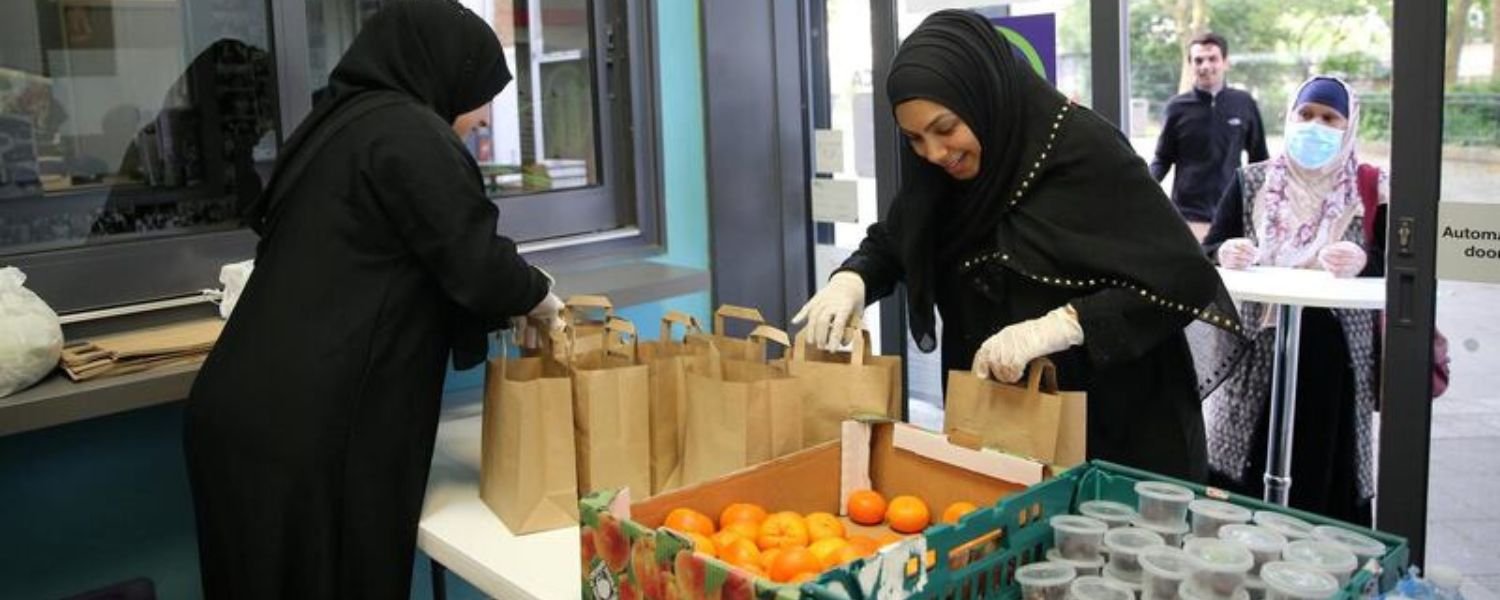
Muslims worldwide observe Ramadan in contemporary society, influencing various aspects of daily life and fostering a sense of community.
Non-Muslim-majority countries often accommodate fasting schedules in workplaces and schools to show respect. Increased media coverage highlights the significance of Ramadan, promoting understanding and tolerance.
Muslims living in diverse societies may face challenges during Ramadan, such as balancing work or school commitments with fasting and prayer. However, many find strength in community support and a shared sense of purpose.
Ramadan’s spirit of charity and empathy resonates in contemporary society, inspiring individuals and organizations to engage in philanthropic activities. This includes providing food and aid to those in need, reflecting the Islamic principle of helping others.
The month also serves as a time for cultural exchange, as people of different backgrounds come together to learn about and celebrate Ramadan traditions. This promotes interfaith dialogue and strengthens social cohesion in multicultural societies.
Overall, Ramadan in contemporary society is a time of reflection, unity, and compassion, enriching the lives of Muslims and non-Muslims.
Conclusion
Ramadan holds a sacred place in Islam, characterized by fasting, prayer, and deep reflection. It is a time for Muslims to strengthen their faith, practice self-discipline, and show compassion towards others. The month reaches its peak with the joyful celebration of Eid al-Fitr, marking the end of the fasting period.
For More Religious-Related Blogs, subscribe to us now!
FAQ
Q. Why is Ramadan important?
Ramadan is important in Islam because it is the month when the Quran was first revealed and because fasting during this month is one of the Five Pillars of Islam.
Q. What are the 10 important things about Ramadan?
Ramadan is important for spiritual reflection, improvement, and increased devotion and worship. It is a month of heightened spirituality, self-discipline, and empathy for others.
Q. What are the Ramadan fasting rules?
Muslims must abstain from eating, drinking, smoking, and engaging in sinful behavior from dawn to sunset during Ramadan.
Q. What is the significance of charity during Ramadan?
Charity, known as Zakat, is an important part of Ramadan. Muslims encourage giving to those in need, both within their own communities and beyond, as an act of purification and seeking blessings from Allah.
Q. What are Taraweeh’s prayers?
Taraweeh prayers are special night prayers performed during Ramadan. They are optional but highly recommended and involve the recitation of extended portions of the Quran in congregation at the mosque.
Q. How is Ramadan observed in contemporary society?
In modern times, Muslims around the world observe Ramadan, including those living in non-Muslim-majority countries.
Workplaces and schools make efforts to accommodate fasting schedules, and media coverage often increases, highlighting the significance of Ramadan.


